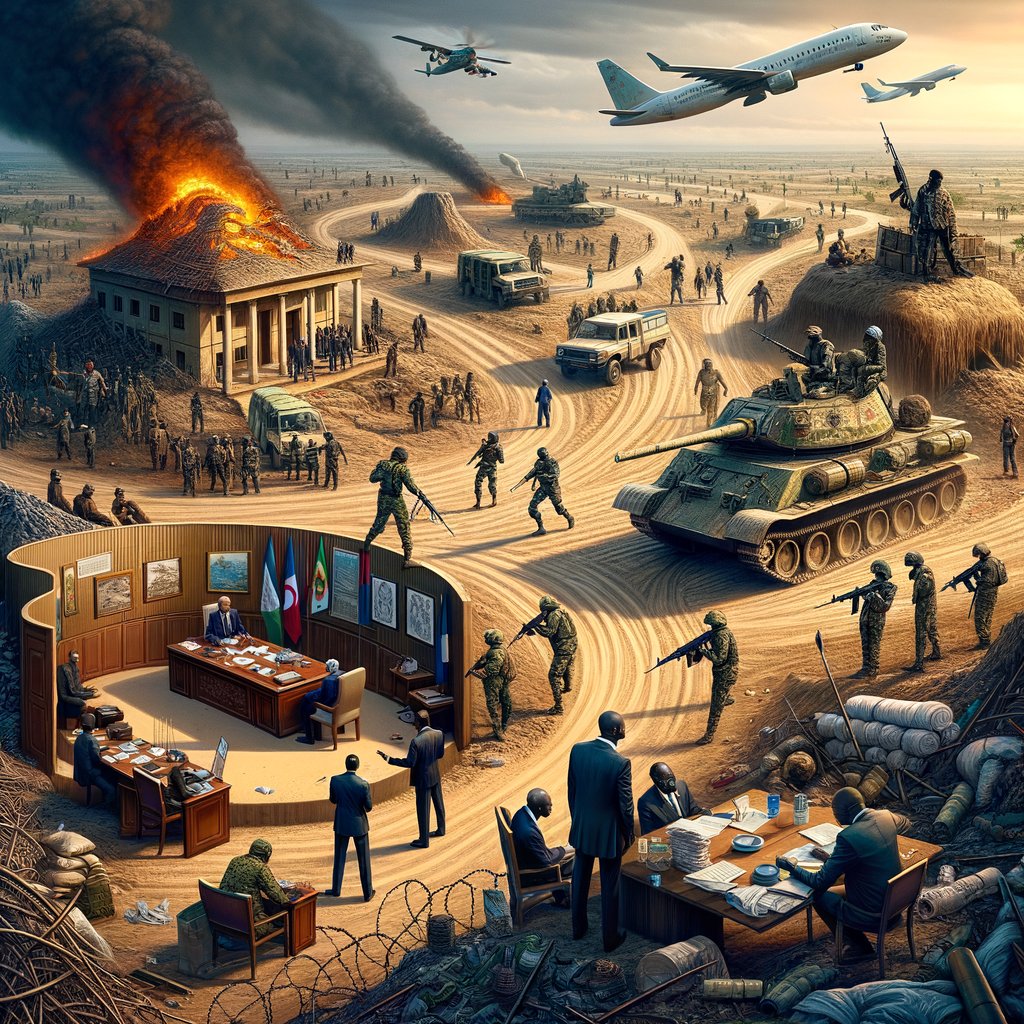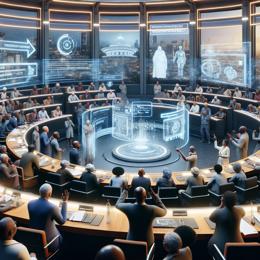Image created by AI
Burundi's Troop Withdrawal Complicates Conflict Dynamics in Eastern DRC Amid M23 Expansion
Tensions in the war-torn eastern Democratic Republic of Congo (DRC) escalated further this week as the M23 rebel group continues its territorial conquest, complicating an already volatile context with the reported withdrawal of Burundian forces from the region. This sudden military retreat marks a significant shift in the landscape of a conflict that has drawn in regional players and international concern.
Sources revealed on Tuesday that Burundi is pulling back its troops, who have been assisting the Congolese military in combating the M23 insurgents. This move casts doubt on the DRC's capacity to curb the rebel advance that has recently resulted in the capture of substantial urban centers including Bukavu and Goma. DRC officials and global media had been monitoring Burundi's deployments closely, given their strategic importance in stabilizing the area.
However, counterclaims by a Burundian military spokesperson labeling the withdrawal reports as "fake" introduced an element of uncertainty and contradiction. The spokesperson maintained that their operations were ongoing, highlighting the opacity and the complex narrative often surrounding operations in conflict zones like the DRC.
The marching orders for the Burundian troops came against the harrowing backdrop of new human rights abuses in the region. The United Nations human rights office has accused M23 rebels of particularly egregious violations, including the execution of children during their recent siege of Bukavu. These disturbing developments underscore the dire situation faced by civilians trapped in the conflict.
In response to the growing crisis, DRC President Felix Tshisekedi has sought regional cooperation, engaging with Angola's President Joao Lourenco to discuss the deteriorating security conditions. Meanwhile, Rwanda vehemently denies allegations of backing M23, despite widespread claims from the DRC, the UN, and various Western entities, pointing instead to its defensive posture against other militia groups in the area.
The eastern DRC remains a land haunted by the specters of colonial exploitation and contemporary geo-economic strategies, with its vast mineral resources—essential for modern electronics and electric vehicles—continuously fueling conflict. Amidst this geopolitical jostling, thousands of civilians find themselves displaced, with many seeking refuge in neighboring countries like Burundi, only to face resource scarcity and potential humanitarian crises.
The DRC conflict, thus, remains not only a regional but a global concern, affecting international diplomacy, security policies, and economic interests, especially as the demand for tech-relevant minerals such as cobalt and tantalum increases. As the international community watches closely, the situation in eastern DRC offers a somber reminder of how deeply intertwined local conflicts can be with global economic networks and geopolitical agendas.


